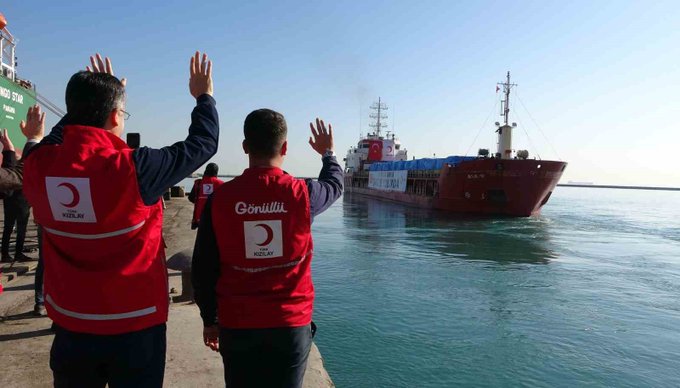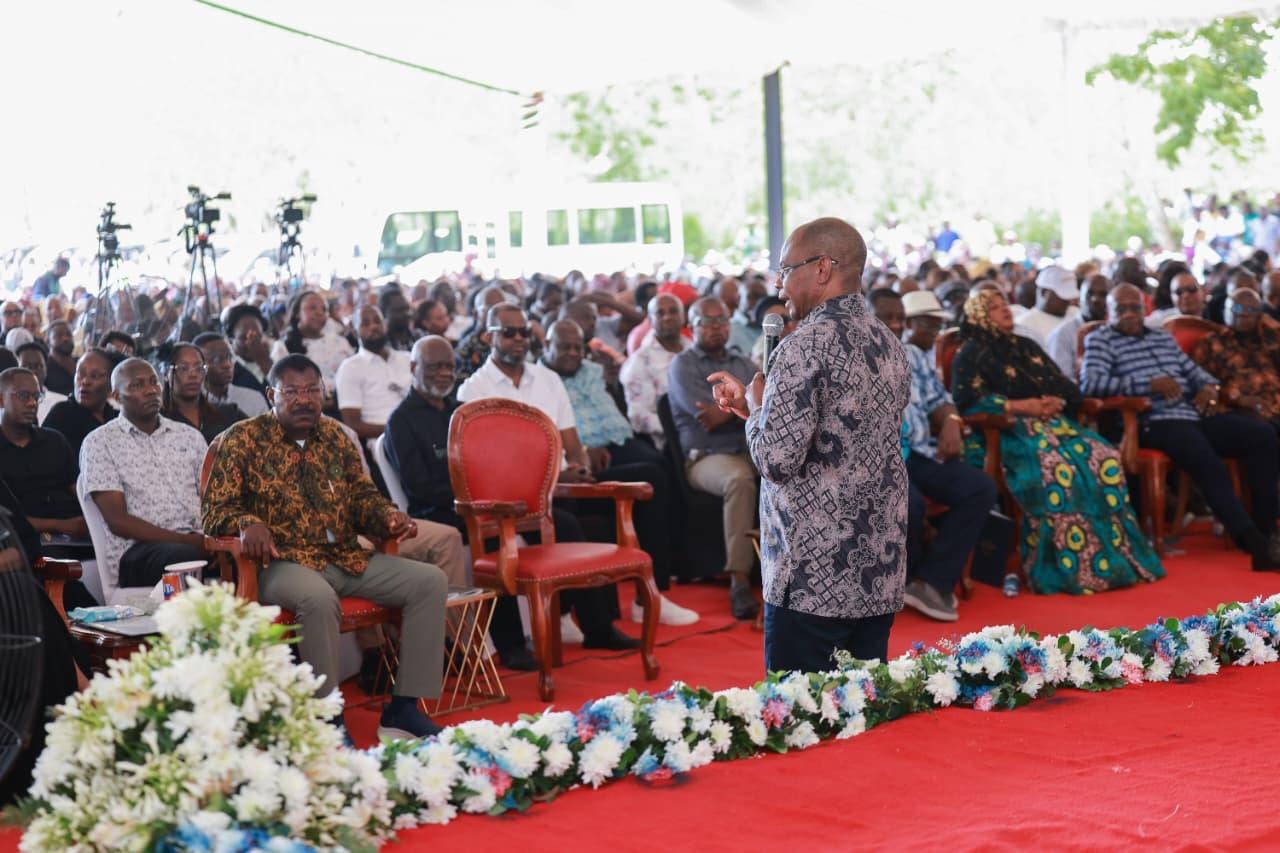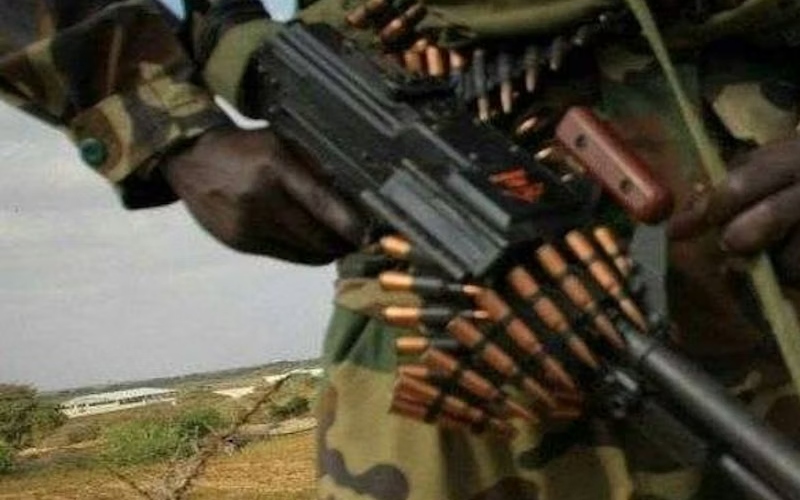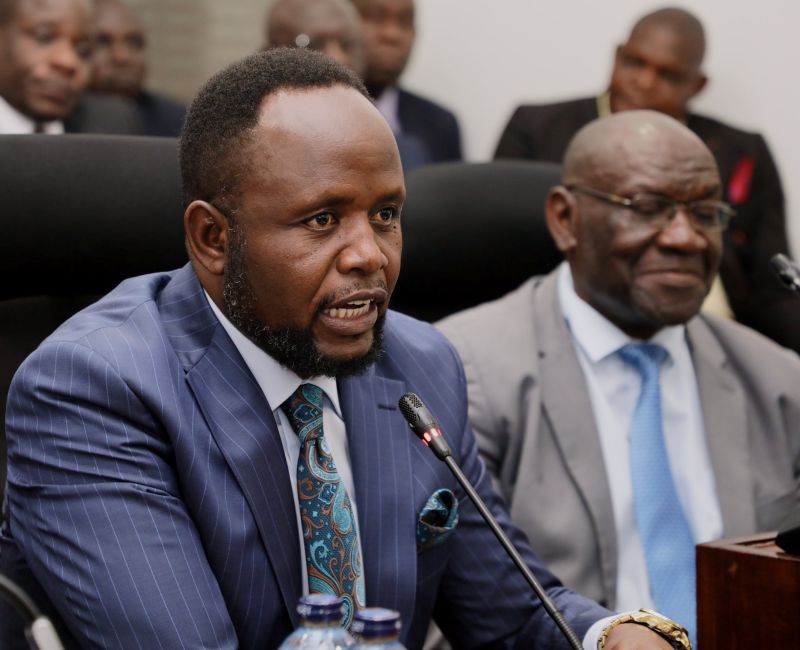Hundreds in Eastleigh start process to reclaim Kenyan citizenship
The process is extensive, beginning Thursday with the removal of fingerprints and deletion of names from the registry. Subsequently, individuals will undergo a rigorous nationality verification process to initiate ID application procedures.
In a remarkable turn of events on Thursday, hundreds of Eastleigh residents flocked to the chief's office to begin deregistering as refugees to acquire Kenyan identity cards and claim citizenship.
Armed with copies of their refugee cards, birth certificates, and other pertinent documents, they formed long queues, eager to initiate the process of removal from the database of the United Nations High Commissioner for Refugees (UNHCR).
More To Read
- Kenya’s refugee population hits 860,000 as State pushes integration plan
- UNHCR warns of deepening humanitarian crisis in Darfur, Kordofan
- Refugee group raises alarm over lending traps facing displaced families
- UN welcomes aid supply talks with Sudan army
- Libya rescues 49 Sudanese migrants off western coast
- Over 30 million people in Sudan in need of humanitarian assistance: UN agencies
The process is extensive, beginning Thursday with the removal of fingerprints and deletion of names from the registry. Subsequently, individuals will undergo a rigorous nationality verification process to initiate ID application procedures. Only then will they get their IDs.
Chief Josiah Munyao, who is overseeing the exercise, expressed optimism about its progress.
"This exercise is expected to continue for the next two weeks, and hopes to serve thousands of people," he said at his office in Eastleigh North Ward, Nairobi. "They are all excited and want to get IDs."
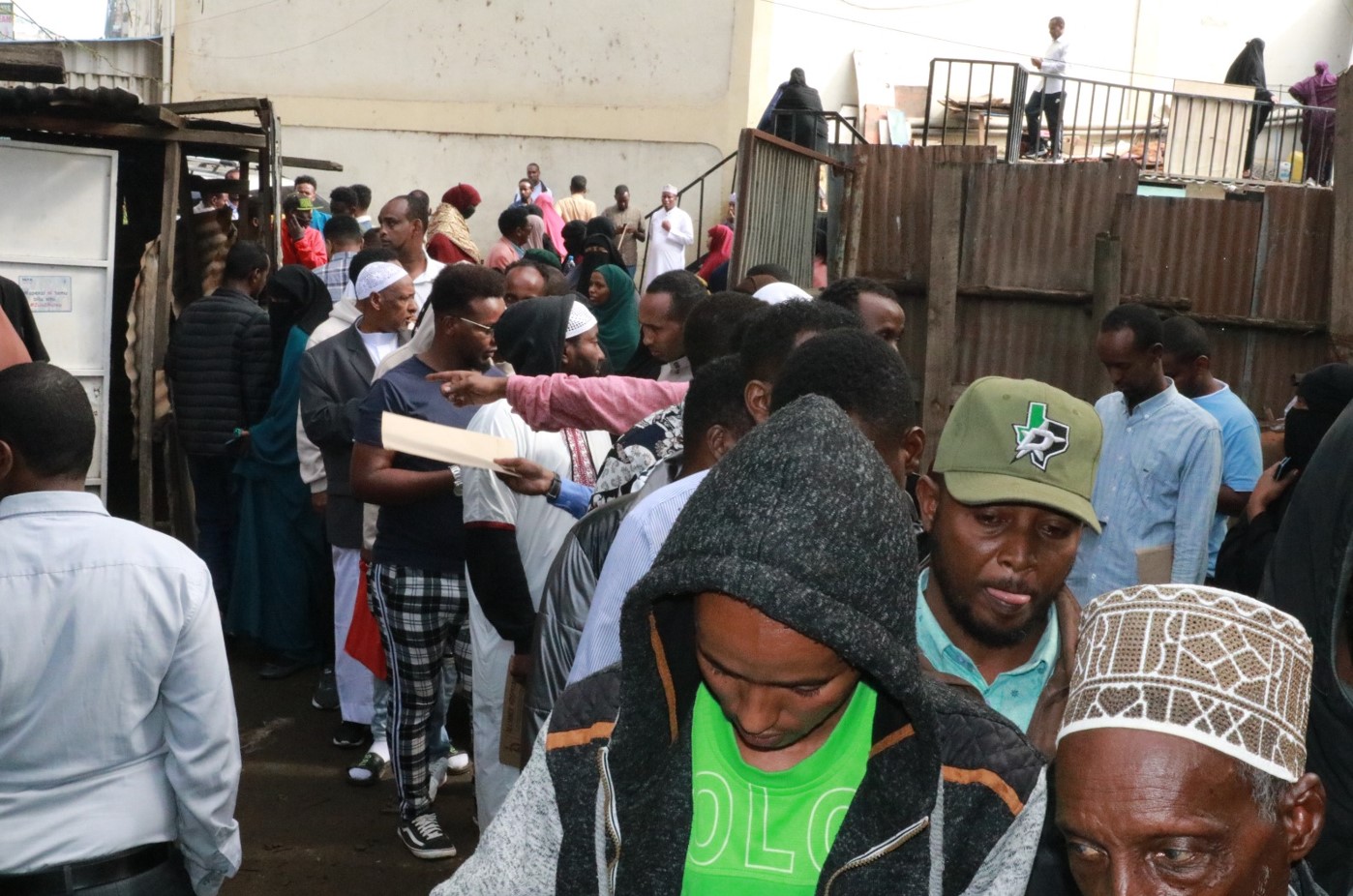 Residents of Eastleigh, Nairobi, are pictured at the chief's office on February 29, 2024, seeking deregistration from the United Nations High Commissioner for Refugees (UNHCR) database. (Photo: Amin Abdullahi)
Residents of Eastleigh, Nairobi, are pictured at the chief's office on February 29, 2024, seeking deregistration from the United Nations High Commissioner for Refugees (UNHCR) database. (Photo: Amin Abdullahi)
According to Haki na Sheria, a human rights organisation that promotes the rights of marginalised communities in Northern Kenya, many residents of that region have lived their lives as refugees, having registered as such to access aid, shelter, and food in the 1980s and 1990s.
Some registered as refugees from Somalia and Ethiopia in the hope that they could get a chance to leave the country for greener pastures in the USA, Canada, and Western Europe, but this did not happen.
Following the cessation of the resettlement programme, they found themselves in a state of limbo, without nationality or legal refugee status. The government has granted them amnesty and provided the option to deregister in order to reclaim their Kenyan citizenship rights.
Abdi Daqane, a father of two who registered as a refugee nine years ago, noted the importance of the ongoing exercise and expressed gratitude for its implementation.
Abdi recounted the hardships he endures travelling between Garissa and Nairobi, as the lack of an identification document becomes a major obstacle.
"The journey from Garissa to Nairobi is hard. Obtaining an ID is essential for me to navigate this journey more smoothly," he told The Eastleigh Voice on Thursday.
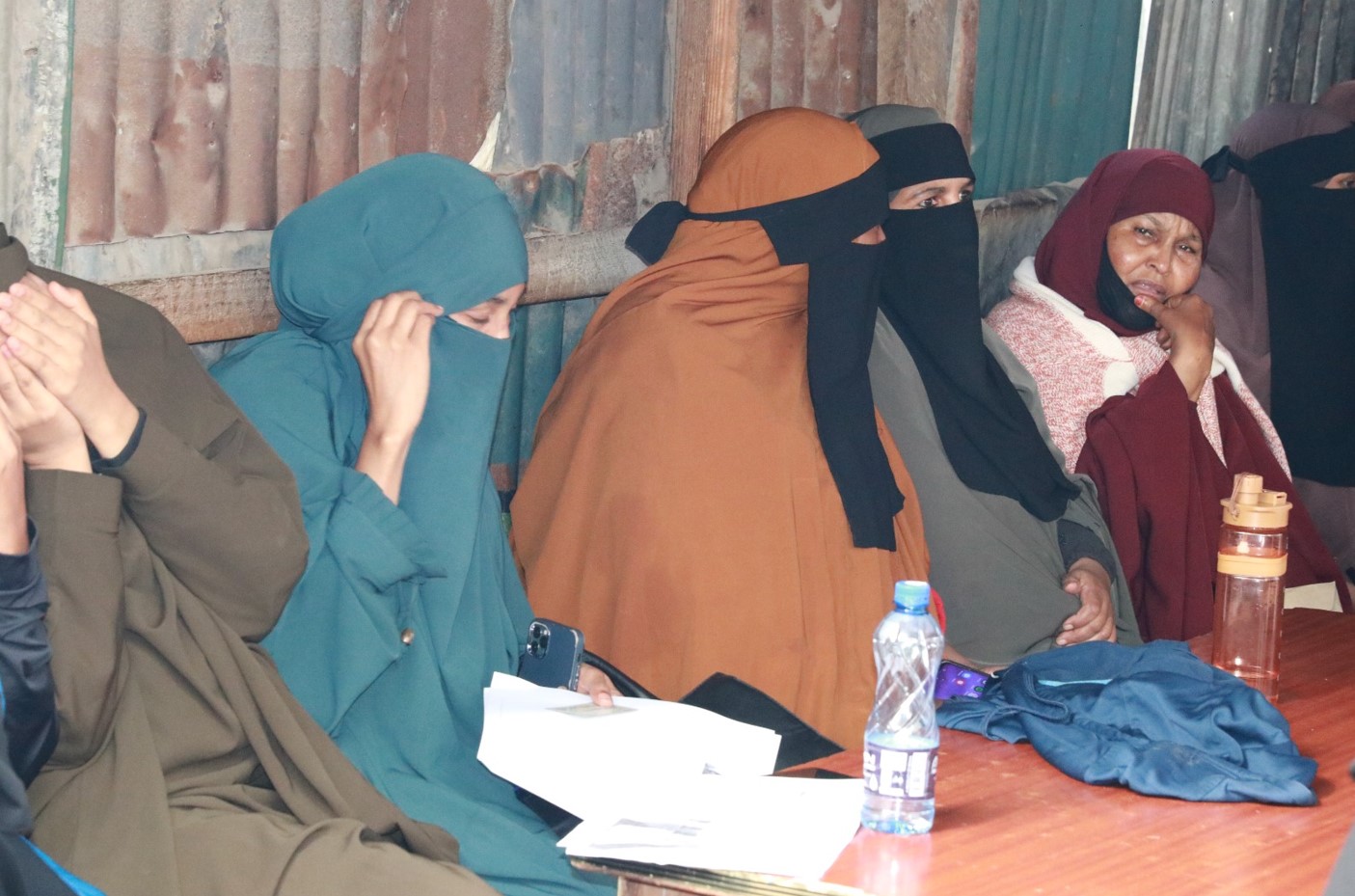 Residents of Eastleigh, Nairobi, are pictured at the chief's office on February 29, 2024, seeking deregistration from the United Nations High Commissioner for Refugees (UNHCR) database. (Photo: Amin Abdullahi)
Residents of Eastleigh, Nairobi, are pictured at the chief's office on February 29, 2024, seeking deregistration from the United Nations High Commissioner for Refugees (UNHCR) database. (Photo: Amin Abdullahi)
The decision to issue IDs to Kenyans in refugee camps stemmed from a directive by the Interior ministry last August, urging the County Security and Intelligence Committee to verify and enroll Kenyans previously listed as refugees.
It signalled a step towards addressing the needs of individuals caught in the bureaucratic complexities of refugee status, as more than 40,000 individuals in Kenya, listed in the UN refugee agency's records, face several challenges due to lack of citizenship status.
Without an ID card, obtaining a SIM card, bank account, or official employment is nearly unattainable, and tens of thousands become virtually stateless, a condition commonly termed double registration.
The directive specifies that local chiefs must ensure applicants are accompanied by a parent, provide a photo, carry acceptable documentary evidence of age, and disclose their refugee status number from the refugee camp.
In cases where parents or siblings are deceased, the chief must confirm the blood guardian in writing to support the applicant's identity, with the guardian committing to the application process.
The quest to deregister from the refugee database comes as the government vets double-registered persons to assist them acquire IDs, a move that follows an extension of the first phase of the exercise that began in March last year.
It will now cover the counties of Nairobi, Mombasa, Marsabit, Wajir, Garissa, Nakuru, Turkana, Mandera, and Tana River. In Nairobi, the exercise will take place at the Starehe, Lang'ata, and Kamukunji deputy county commissioners' offices.
Interior Cabinet Secretary Kithure Kindiki directed that the exercise follow due process because of its security implications.
Top Stories Today


